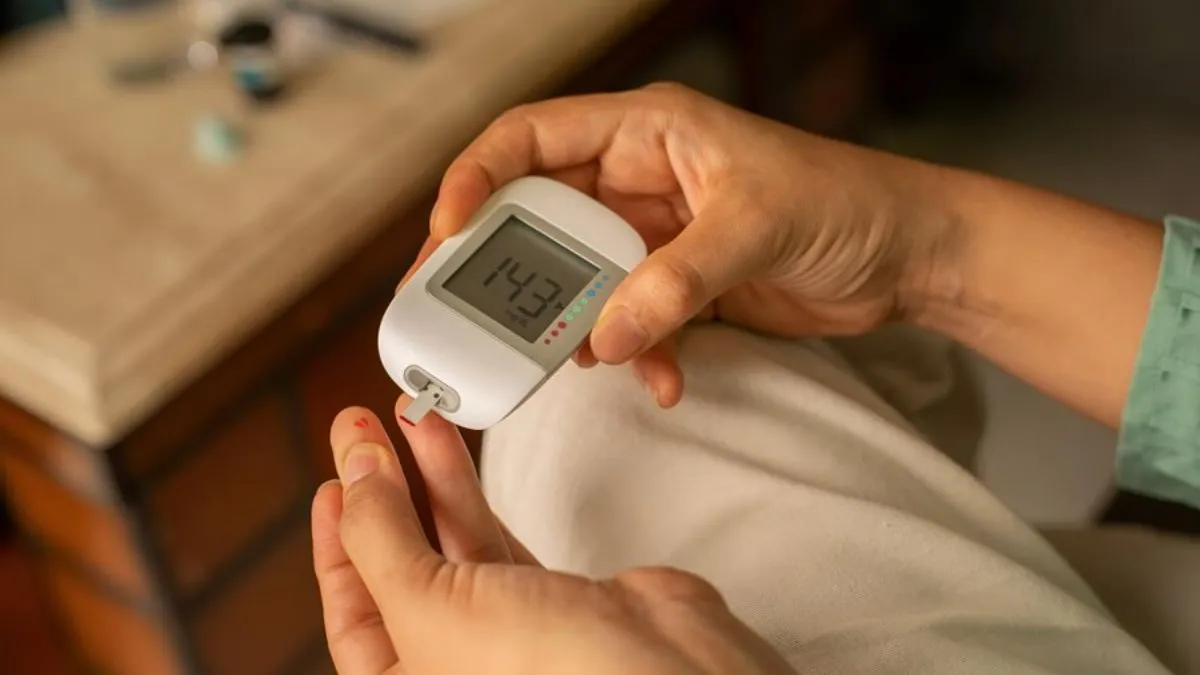- By Prerna Targhotra
- Mon, 30 Sep 2024 02:49 PM (IST)
- Source:JND
Dangerous Levels Of Blood Sugar: Understanding your blood sugar levels can reduce your risk of diabetes and other lifestyle-related health conditions. Managing blood sugar levels is a vital healthcare practice, especially if you have type 1 and type 2 diabetes. Also, recognising dangerous blood sugar levels which are hyperglycemia and hypoglycemia can help in preventing several severe health complications.
Managing your blood sugar levels can help you to live a healthy and long life by reducing risks of kidney failure, nerve damage and heart-related diseases. But how do you know the normal and dangerous levels of blood sugar?
Normal Range Of Blood Sugar
According to the Mayo Clinic, a fasting blood sugar level of less than 100 mg/dL (5.6 mmol/L) is normal. A fasting blood sugar level from 100 to 125 mg/dL (5.6 to 6.9 mmol/L) is considered prediabetes. If it's 126 mg/dL (7 mmol/L) or higher on two separate tests, you have diabetes.
A blood sugar level of less than 140 mg/dL (7.8 mmol/L) is normal. A reading of more than 200 mg/dL (11.1 mmol/L) after two hours means you have diabetes. A reading between 140 and 199 mg/dL (7.8 mmol/L and 11.0 mmol/L) means you have prediabetes.
What Are Dangerous Levels Of Blood Sugar?
Blood sugar levels above 180 to 200 milligrams per deciliter (mg/dL), or 10 to 11.1 millimoles per litre (mmol/L) are considered dangerous and referred to as hyperglycemia. Common symptoms of hyperglycemia include frequent urination, increased thirst, blurred vision and feeling weak or unusually tired.

Dangerous Blood Sugar Levels (Image Credits: Canva)
Ways To Manage Blood Sugar
According to Dr. (Col) Manjinder Sandhu, Principal Director - Cardiology, Fortis Memorial Research Institute, the importance of managing blood sugar to protect heart health is well-supported by research. One study found that individuals with diabetes who kept their blood sugar levels in check were less likely to develop heart disease than those who did not manage their levels effectively.
Dr Sandhu suggests that managing blood sugar involves more than just regular glucose monitoring, it encompasses a heart-healthy lifestyle that includes a balanced diet, regular physical activity, and effective stress management. Together, these strategies help create a healthier environment for the heart, reducing the likelihood of complications and enhancing overall well-being.
ALSO READ: How To Control Diabetes With Lifestyle Changes And Naturally Boost Insulin, As Advised By Doctor
ALSO READ: Expert Lists Easy Tips To Manage Blood Sugar Levels During Festive Season

